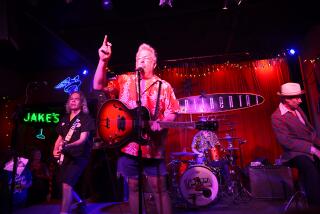NIXON LIBRARY : INSIDE THE NIXON LIBRARY
* The Early Years/Lobby: Besides offering ticket sales and information, the lobby is a waiting area for viewers of an orientation film. Visitors learn about Nixonâs life before politics, illustrated with childhood photos, report cards, yearbook pages and other items shown in display cases. Also displayed is book a filled with copies of letters to Nixon from notable figures. The gift shop will offer items ranging from Nixonâs books to ties patterned with his initials.
* Theater: A 28-minute film, âNever Give Up: Richard Nixon in the Arena,â recaps Nixonâs life and career. The theater seats 293 people and will also be used for lectures. The Road to the Presidency: Exhibits highlight Nixonâs journey to Congress. His work in the House of Representatives is described, including an alcove devoted to the 1948 Alger Hiss espionage case that brought Nixon national recognition for his refusal to drop the investigation. Nixonâs days as a Senator are represented by a 1949 Mercury Woody, a replica of a station wagon the Nixons drove around California during the 1950 campaign.
* The Vice Presidency: Nixonâs election to vice president and work in that office are covered. Featured are early 1950s-era TV broadcasts, including excerpts from the âCheckersâ speech, in which Nixon successfully defended himself against allegations of using political money for personal gain. Other exhibits describe Nixonâs increasingly prominent role as he stepped in for the ailing President Dwight D. Eisenhower and note the 60 countries Nixon visited as a U.S. emissary. Also displayed are handwritten notes from the first White House meeting of Nixon and the Rev. Martin Luther King Jr.
* 1960 Presidential Campaign: Showing continually on 1960s-style TVs are excerpts from the first televised presidential debates between Nixon and John F. Kennedy. Also displayed are photos from the 1960 presidential campaign and election memorabilia.
* Wilderness Years/1968 Presidential Campaign: Texts and visual displays describe Nixonâs activities during his absence from public office, including his failed attempt to become California governor, his law career and travels. A display case describes his comeback in being elected to the presidency in 1968 and includes some campaign memorabilia.
* World Leaders: Life-size statues of 10 world leaders are surrounded by more than 50 gifts from foreign nations to Nixon, including a 100 BC oil lamp from Israel. Touch-screen monitors present a biographical summaries of each leader, comments from the leaders about Nixon and from Nixon about leaders. Included are Charles de Gaulle, Mao Tse-tung, Golda Meir, Anwar Sadat and Leonid I. Brezhnev.
* Structure of Peace: Exhibits spotlight Nixonâs achievements in foreign affairs. An archway symbolizes Chinaâs opening to West under the Nixon presidency and his historic 1972 visit. A mock-up of a U.S. tract home, complete with white picket fence and green shag carpeting, houses a display on Vietnam. A 1970s-style TV in the living room airs Nixonâs âSilent Majorityâ speech, where he called on Americans to show support for his Vietnam policies. A walk-through model of St. Basilâs Cathedral in Moscow represents Nixonâs relations with the Soviet Union, from his âkitchen debateâ with Nikita S. Khrushchev to his visit to the U.S.S.R. in 1972, the first by a U.S. President.
* Life in the White House/Pat Nixon: The Nixonsâ day-to-day life in the White House is spotlighted, as well as special occasions, state dinners and holiday celebrations. Also displayed are several dresses, including the gown Pat Nixon wore to the second inaugural and the wedding dresses of both Nixon daughters. One display case is devoted to the life of Pat Nixon and her view of life in the White House. The room includes a view of the First Ladyâs garden outside.
* Evolution of a Speech: The development of the âSilent Majorityâ speech is outlined, from Nixonâs handwritten notes to the final version. The âSilent Majorityâ speech and others are shown throughout the day in a small cinema.
* Lincoln Sitting Room: One of Nixonâs favorite White House chambers, the Lincoln Sitting Room has been re-created to look as it did when Nixon used the room. Included is the brown easy chair Nixon sat in. Pictures behind windows reproduce Washington views that Nixon saw from the room.
* Domestic Affairs: The domestic achievements of the Nixon Administration are divided into 10 categories, including space exploration, the environment and the economy. Other displays list appointees to the U.S. Supreme Court, Cabinet and Vice Presidency. A section of room describes Nixonâs landslide reelection in 1972.
* Domestic Gifts: The pistol that Elvis Presley gave Nixon is displayed, along with other gifts he received from Americans during his Administration.
* Watergate: A time line lists key developments in the Watergate scandal, from the break-in at Democratic headquarters to Nixonâs resignation. Photographs and Nixonâs later reflections on the events are part of the timeline. Three Watergate tapes play through headsets in part of the room, including the âSmoking Gunâ and âCancer on the Presidencyâ tapes.
* Presidential Forum: Two touch-screens allow visitors to ask Nixon one of about 300 questions listed under topics such as Watergate, foreign affairs and Vietnam. A laser-disc recorded image of Nixon played over the roomâs large TV screen answers questions in the order asked. Answers were either recorded in a studio recently by Nixon or compiled from past interviews.
* Legacy: Nixonâs activities since resigning office described, such as writing several books and a taking a recent trip to China to meet with government officials.


